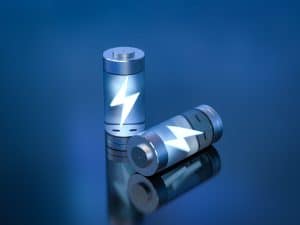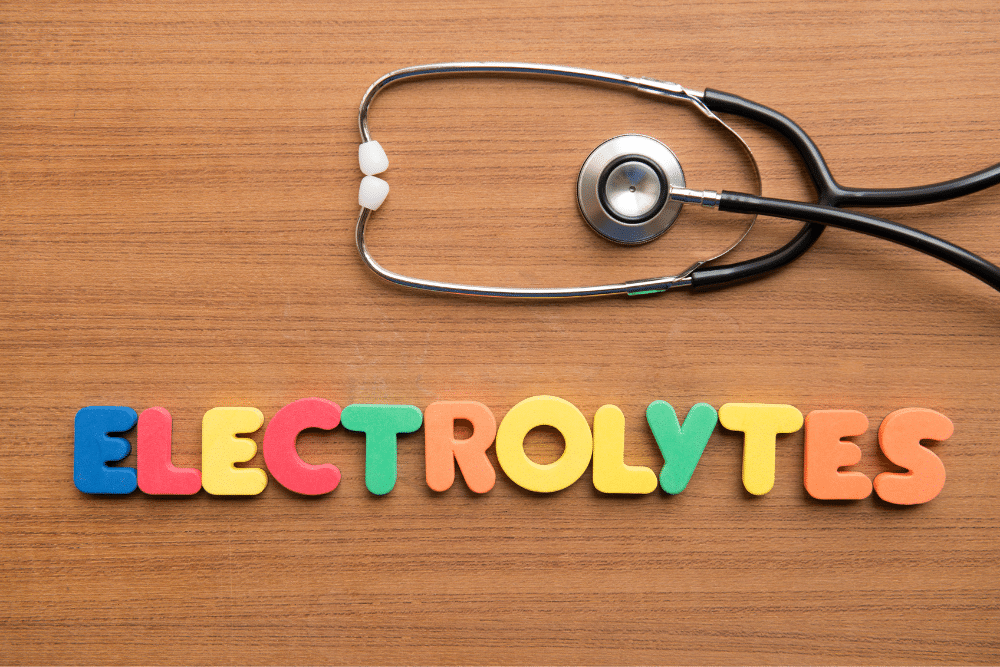Welcome to the keto world, a lifestyle choice that has captured the attention of health enthusiasts and weight loss seekers alike. The ketogenic diet, renowned for its ability to drive the body into a state of ketosis for fat burning, offers numerous benefits ranging from improved mental clarity to sustained energy levels. However, embarking on this low-carb journey introduces a crucial aspect that often goes unnoticed but is vital for maintaining peak performance: the balance of electrolytes on keto.
Electrolytes are minerals essential for various bodily functions, including hydration, nerve signalling, and muscle contraction. When you adopt a ketogenic lifestyle, your body undergoes significant changes, including a shift in how it retains and utilises these critical nutrients. Understanding the role of electrolytes on keto is paramount for anyone looking to survive and thrive on this diet. Whether you’re an athlete pushing for peak performance or navigating the everyday hustle, mastering the balance of electrolytes can be the key to unlocking your full energy potential. Join us as we dive deeper into why electrolytes on keto deserve your attention and how to manage them for optimal health and vitality.
Understanding Electrolytes on Keto

Embarking on a ketogenic diet brings to the forefront the critical role of managing electrolytes on keto. These charged minerals are foundational to our body’s operation, ensuring that our nerves, muscles, hydration, and heart function correctly. Sodium, potassium, magnesium, and calcium are essential electrolytes facilitating these vital processes.
The need to balance electrolytes on keto becomes particularly crucial due to the diet’s unique metabolic demands. As you cut carbs and enter ketosis, your body shifts its energy source from glucose to fat. This transition significantly reduces insulin levels, leading your kidneys to excrete more sodium and water. The result? A potential imbalance in your electrolyte levels.
Why does this matter? The symptoms of electrolyte imbalance, often dubbed the keto flu, include fatigue, headaches, and muscle cramps, which can hinder your transition and overall experience on the ketogenic diet. Thus, understanding how to maintain electrolytes on keto is not merely about enhancing physical performance or endurance; it’s about ensuring your keto journey is healthy and sustainable. Proper electrolyte management is critical to mitigating the initial challenges of ketosis and supporting your body’s adaptation to its new fuel source.
➤ For more insights into managing ketosis, click here. And for strategies to navigate through keto flu symptoms, click here to learn more.
Common Signs of Electrolyte Imbalance

As you navigate your way through the ketogenic diet, understanding the common signs of electrolyte imbalance is crucial. This knowledge equips you to maintain optimal electrolytes on keto levels, ensuring a smoother transition and a more effective diet experience. Electrolyte deficiency can manifest in various ways, significantly impacting your daily life and performance on the keto diet.
Some of the most common symptoms to watch out for include:
- Fatigue: Feeling unusually tired or lethargic can indicate that your electrolytes are out of balance.
- Headaches: Persistent headaches or migraines might indicate a deficiency in crucial electrolytes.
- Muscle Cramps: Sudden, painful cramps in your muscles, particularly in your legs, can signal low levels of magnesium and potassium.
Keto-induced diuresis, a process where your body excretes more water and, subsequently, electrolytes through urination, significantly contributes to these imbalances. As your body adapts to burning fat for fuel, it sheds excess water, carrying away sodium, potassium, magnesium, and calcium — crucial electrolytes on keto. This increased loss underscores the importance of actively managing your electrolyte intake to counteract the effects of diuresis and maintain your body’s essential functions.
By staying vigilant about these signs and understanding the impact of keto on your electrolyte levels, you can take proactive steps to supplement as necessary. This approach helps mitigate uncomfortable symptoms and supports your overall health and success on the ketogenic diet.
Key Electrolytes on Keto to Monitor

Navigating the ketogenic journey, it becomes imperative to closely monitor key electrolytes on keto to ensure your body functions optimally. The shift to a low-carb diet can disrupt your electrolyte balance. Still, by understanding the roles and benefits of essential electrolytes, you can effectively manage your intake and avoid potential issues. Let’s dive into the three critical electrolytes you should keep an eye on:
Sodium
Often vilified in the context of a high-sodium diet, sodium plays a vital role in your ketogenic journey. It’s paramount for maintaining hydration and regulating blood pressure. On keto, as your body sheds water, it also loses sodium. This loss can lead to symptoms like headaches and fatigue. Ensuring adequate sodium intake helps maintain your body’s fluid balance, supports nerve and muscle function, and prevents the dreaded ‘keto flu.’
Potassium
This electrolyte is crucial for muscle function and a regular heartbeat. Potassium works closely with sodium to maintain cellular fluid balance but is vital for transmitting electrical impulses throughout your body. These impulses are essential for muscle contractions and heart rhythm regulation. As you manage your electrolytes on keto, adequate potassium helps prevent muscle cramps and supports cardiovascular health. It’s key to avoiding lethargy and ensuring your muscles work as they should.
Magnesium
Often overlooked, magnesium is a powerhouse for energy production and muscle relaxation. It aids in converting food into energy, creating new proteins from amino acids, and regulating neurotransmitters that send messages throughout your brain and nervous system. Magnesium’s role in relaxing muscles is particularly beneficial on keto, where muscle cramps can be expected due to electrolyte imbalances. Ensuring sufficient magnesium intake can help you avoid these cramps, improve sleep quality, and enhance overall well-being.
By focusing on these key electrolytes on keto, you equip your body to handle the transition to ketosis more smoothly, supporting hydration, muscle function, and energy levels. This vigilant approach to electrolyte management is not just about avoiding negative symptoms; it’s about optimising your health and maximising the benefits of your ketogenic lifestyle.
Dietary Sources of Essential Electrolytes

Maintaining the balance of electrolytes on keto is a pivotal aspect of ensuring your ketogenic journey is healthy and enjoyable. Knowing which keto-friendly foods are rich in essential electrolytes like sodium, potassium, and magnesium can help you naturally integrate these vital minerals into your daily meals.
Here’s how you can keep your electrolyte levels topped up with delicious, nutrient-dense foods:
Sodium
Given its importance in hydration and blood pressure regulation, finding adequate sources of sodium is crucial. Keto-friendly options include:
- Broths and soups: Opt for bone broth or make homemade vegetable soups and season them with Himalayan pink salt or sea salt.
- Cheese: Hard cheeses like parmesan and feta are flavourful and offer a good amount of sodium.
- Pickled vegetables: Adding pickles or sauerkraut to your meals can provide both sodium and a probiotic boost.
Potassium
Essential for muscle function and heartbeat regulation, potassium can be found in:
- Avocado: This keto staple is rich in healthy fats but also an excellent source of potassium.
- Leafy greens: Spinach and kale are versatile greens easily incorporated into smoothies, salads, or a cooked side dish.
- Nuts: Almonds and walnuts are great for snacking and add a nice crunch to salads or yogurts.
Magnesium
Critical for energy production and muscle relaxation, magnesium-rich foods include:
- Pumpkin seeds: Snack on them raw or sprinkle them over salads for an extra magnesium boost.
- Dark chocolate: Look for high cocoa content chocolate (above 70%) for a decadent treat that’s also good for your electrolyte balance.
- Fatty fish: Salmon and mackerel are not only great sources of omega-3 fatty acids but also provide magnesium.
Tips for Incorporating These Foods
Start your day with an avocado and leafy green smoothie seasoned with a pinch of salt to kickstart your electrolyte intake.
Prepare a big salad for lunch with mixed greens, nuts, and cheese. Dress it with olive oil and lemon juice for extra flavour and nutrients.
For dinner, choose a broth-based soup as a starter, followed by a portion of fatty fish with a side of sautéed kale or spinach.
By focusing on these dietary sources of electrolytes on keto, you can ensure that your meals are mouthwateringly delicious and nutritionally balanced, supporting your health and well-being as you embrace the ketogenic lifestyle. Remember, the key to success on keto is not just about limiting carbs but nourishing your body with the proper nutrients.
Supplementation Strategies

Navigating your ketogenic journey, there might come a time when focusing on dietary sources alone isn’t enough to maintain the balance of electrolytes on keto. This is when considering electrolyte supplements, which becomes crucial. Supplements can provide a concentrated dose of essential minerals, ensuring you meet your daily needs without breaking your carb limit.
When to Consider Electrolyte Supplements
- During the Initial Transition: The hardest week of keto can significantly deplete your electrolyte levels. Supplementing can help mitigate keto flu symptoms, such as fatigue and headaches.
- For Active Individuals: If you engage in regular, intense exercise, you might lose more electrolytes through sweat. Supplementing helps replenish these losses and support muscle function.
- When Experiencing Persistent Symptoms: If symptoms of electrolyte imbalance persist despite a balanced keto diet, supplements can help correct deficiencies.
Choosing the Right Supplement
- Check the Labels: Look for supplements that balance sodium, potassium, and magnesium. Avoid those with added sugars or carbs that could disrupt your keto progress.
- Consider Quality: Opt for high-quality supplements from reputable brands. Research and reviews can guide you toward products that are effective and safe.
- Tailor to Your Needs: Your electrolyte needs can vary based on activity level, climate, and individual health. Start with lower doses and adjust based on how you feel and what your body tells you.
By thoughtfully incorporating electrolyte supplements into your routine, you can ensure that your electrolytes on keto are optimised, supporting your overall health and performance on the ketogenic diet. Remember, while supplements can be beneficial, they should complement a nutrient-rich keto diet, not replace it. Consider consulting with a healthcare professional before adding any new supplement to your regimen to tailor the approach to your specific needs and circumstances.
Balancing Electrolytes for Optimal Health

Maintaining the balance of electrolytes on keto is essential for achieving optimal health while ensuring you remain in ketosis. It’s a delicate dance, requiring mindful strategies to keep everything in harmony. Here are some approaches to ensure your electrolyte levels support your wellness goals without compromising your ketogenic state.
Strategies for Maintaining Electrolyte Balance
- Diversify Your Diet: Incorporate a wide range of keto-friendly foods rich in sodium, potassium, and magnesium. Avocados, leafy greens, nuts, and seeds can provide essential minerals.
- Stay Hydrated: Drinking sufficient water is crucial, but remember to balance it with electrolyte intake. Too much water can dilute your electrolytes, while too little can lead to dehydration.
- Mind Your Salt: Adding more salt to your meals can help increase your sodium levels, which is particularly important in the early stages of keto and for active individuals.
The Importance of Regular Monitoring and Adjustment
- Listen to Your Body: Symptoms like fatigue, headaches, or muscle cramps can show that your electrolyte balance is off. Attention to your body’s signals can guide you when adjusting your intake.
- Use Supplements Wisely: Electrolyte supplements can be helpful but should be used judiciously. Tailor your supplementation to your specific needs, which can change based on your activity level, climate, and other factors.
- Regular Check-ins: Consider regular health check-ups to monitor your electrolyte levels and overall health. This can provide objective insights into how well you’re managing your electrolytes on keto and whether any adjustments are needed.
Balancing electrolytes on keto doesn’t just support your physical health; it’s also vital for your mental and emotional well-being. By implementing these strategies and making adjustments as needed, you can ensure that your keto journey is as healthy as practical, allowing you to enjoy the full spectrum of benefits this lifestyle offers.
Conclusion
In conclusion, the role of electrolytes in keto cannot be overstated. These crucial minerals are the linchpins in supporting a successful transition into ketosis and sustaining a healthy and vibrant keto lifestyle. From regulating hydration and blood pressure to ensuring proper nerve function and muscle contractions, electrolytes touch nearly every aspect of our physical well-being.
As you embark on or continue your keto journey, prioritising electrolyte balance is essential. Whether through a thoughtfully curated diet, the wise use of supplements, or a combination of both, maintaining this balance is critical to avoiding the pitfalls of the keto flu and other related challenges. Remember, achieving ketosis is just the beginning. The true essence of a keto lifestyle lies in nurturing your body with the proper nutrients, including electrolytes on keto, to thrive.
We encourage you to view electrolyte management not as a chore but as an integral part of your journey toward optimal health. By staying vigilant about your electrolyte levels and making adjustments as needed, you set the stage for a successful keto experience and a life enriched with incredible energy, clarity, and overall well-being. Let electrolyte balance be the cornerstone of your keto lifestyle, and watch as it transforms your health journey into a rewarding and sustainable adventure.


